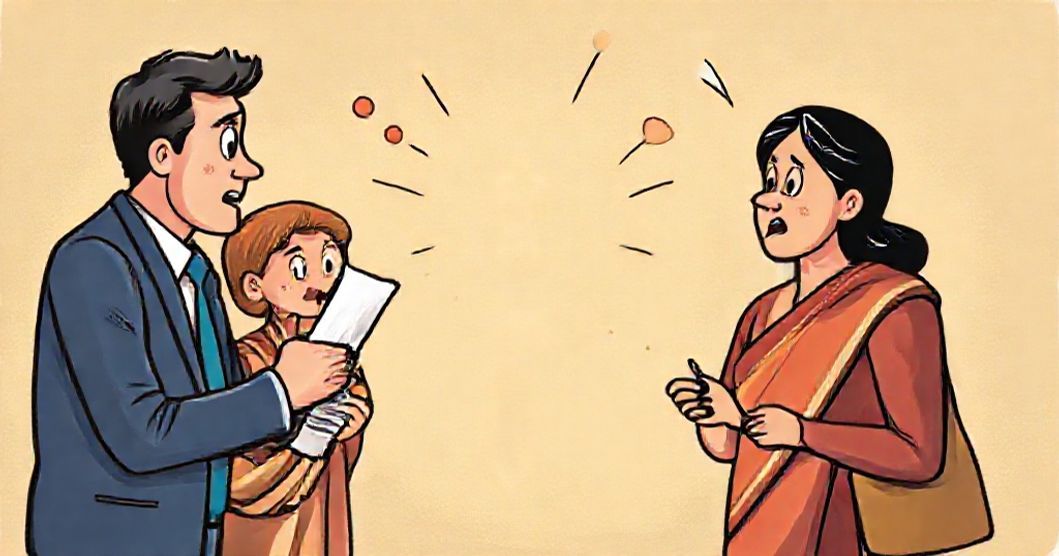Assam Surprise exclusion – Surprise exclusion of Assam from the second phase of the special intensive revision (SIR) of electoral rolls by the Election Commission has triggered speculation in political circles in the State. The reasons are not few and far between. To begin with, there was not a speck of doubt in the mind of the political class and the general public that even if only one State was picked by the EC for the SIR, it would be Assam.
There is fair amount of cardinal logic behind such thoughts. Since Independence, and in fact, even before that, citizenship of religious and linguistic minorities has remained a contested issue in Assam.
Othering of the non-Assamese and non-Khilonjiyas (a loose and open-ended coinage for the “original inhabitants” of the State) in access to linguistic, cultural and political rights is pretty visible in the annals of post-colonial history of Assam. In the recent past, things have turned more complex and the political lexicon has changed to the extent of wilful dilution, if not suspension, of certain Articles of the Fundamental Rights enshrined in Part III of the Constitution.
For example, Assam is the only federal unit in the country where one would readily find two sets of voters and another two sets of citizens. There are voters and D (doubtful) voters. By an irregular and unconstitutional order of the EC back in 1997, a large section of the electors — mostly belonging to the State’s Bengali-speaking community cutting across religious affiliations — were labelled as “D-voters” and marked ‘D’ on the electoral rolls.
This doubtful decree of the EC, in its trail, disenfranchised hapless citizens, and the issue has been hanging fire till date. Latest figures suggest close to one lakh “D-voters” are still languishing under this pejorative identity. Twenty-eight years ago, nearly five lakh electors in Lower Assam and the Barak Valley were brought under the D-dragnet.
As many as 2. 44 lakh cases were registered against this excluded category in various Foreigners’ Tribunals, and 1.
47 lakh of these cases were resolved. NRC update Update of the National Register of Citizens (NRC) was undertaken only in Assam from 2015 to 2019, thanks to a Supreme Court judgment (Corum, Rohington F Nariman, JJ, Ranjan Gogoi, JJ) dated December 17, 2014. But the mammoth NRC exercise could not be brought to its logical conclusion even after a drain of ₹1,600 crore from the State exchequer and five years of trials and tribulations for the State’s citizens.
This beggars an explanation from the Indian state. A total of 19. 6 lakh people were excluded from the NRC list released on August 31, 2019.
More than six years have gone by, but the Registrar-General of India (Citizens’ Registration) is yet to find time to ink the document. This is how Assam has the binary of citizens and non-citizens. Violent anti-foreigner movement spearheaded by the All Assam Students’ Union and the Gana Sangram Parishad from 1979 to 1985 brought to the table of the sub-regional nationalism a third dichotomy to divide the people vertically in a multi-cultural milieu of Assam.
An artificially constructed “indigenous” versus “foreigner” binary, since then, has grown in strength and intensity in Assam with both overt and covert support of the state machinery. Entry of the BJP in the political theatre of the State has provided sufficient grist to the mill of communal divide which helped this party and the Sangh Parivar to rope in power.
The design has so far been more than successful in that the BJP’s electoral foray has almost decimated the Opposition forces. Whatever traction the Congress had post-2021 Assembly election just withered away when in the name of delimitation, the present Chief Minister, Himanta Biswa Sharma, engineered gerrymandering exercises to limit concentration of the Muslim population to around 20-plus Assembly segments so that Muslim MLAs could never be a deciding factor in the formation of governments. Just when the Chief minister, his party, the RSS, and the embedded media appeared too sure of the third victory on the trot for the BJP in the Assembly election likely to be held in April 2026, in came the death of Zubeen Garg.
The “death-due-to-drowning” of the most popular and talented singer-social activist-altruist of Assam in the sea off Singapore on September 19 and the unprecedented aftermath have produced a political topsy-turvy in the most important State of Northeast India. The general public of Assam, led by the Gen Z, have come out in millions demanding Justice for Zubeen. Adding fuel to the fire, the “oligarchy” in Assam has become the target of public wrath.
Social media is agog with stories of alleged misdemeanours of the members of the highly influential families close to the Chief Minister and his wife, including Shyamkanu Mahanta, a leading entrepreneur and chief organiser of the North East Festival. Zubeen, whose death has reconfirmed the Shakespearean adage “Caesar dead is more powerful than Caesar alive”, was in Singapore only to perform in that mega event. The ongoing protests on the streets and virtual media against the government, demanding an independent, credible and fair inquiry to unearth the cause of death of Zubeen Garg, who was passionate about his land and people throughout his brief life, have reduced the once-confident ruling party to a nervous and scared flock.
As if to rub salt to the wound, the BJP received a perfect drubbing in the recently concluded Bodo Territorial Council (BTC) polls in which Hagrama Mohilary-led Bodoland People’s Front (BPF) romped home to power with absolute majority. The detractors of Himanta Biswa Sarma and independent political commentators have maintained that the thorough defeat of the BJP in the BTC is, in fact, a personal snub to him as he was the chief campaigner. At such a transformed background and in a fluid trail of development, the Modi-Shah-Himanta combine cannot surely risk the SIR in Assam.
When there is already a huge number of excluded members in the State citizenry, one more bout of deletions from the electoral rolls, howsoever suitable to them in the normal situation, is the last thing the ruling dispensation can ill afford to invite at the moment. The ludicrous logic advanced by the EC that Assam has to be kept out of the SIR at least for the present (read till the 2026 Assembly election) because it has a special citizenship provision tells the story which, however, has few takers.
Joydeep Biswas is Head of Economics in Cachar College under Assam University, Silchar, and a commentator on society, polity and economy of Northeast India. Views expressed are personal.


